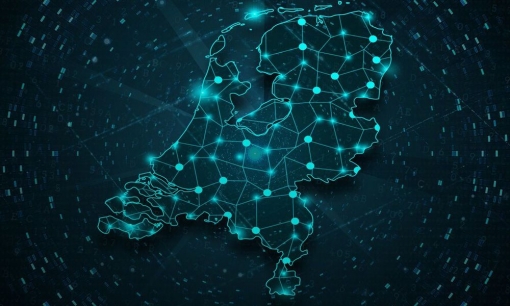
The Dutch community is proud to host Semantics 2021 in Amsterdam. We are also delighted we have the opportunity to elaborate 4 local themes in the morning workshops.
This workshop is organized by Hayo Schreijer (Dexes) and Michiel Stornebrink (TNO). This workshop is about enabling semantic technologies for data sharing. Data sharing is an important aspect to enable data-driven decision support systems, more efficient supply chain processes, improved collaboration between business partners and even new business opportunities. In our current times, data needs to be FAIR (Findable, Accessible, Interoperable and Reusable) and data sovereignty is an important aspect. Interoperability agreements and technologies are needed for legal-, organizational-, technical- and semantic interoperability. This workshop focuses on semantic interoperability for data sharing, e.g. how vocabularies/ontologies can be (re)used for API design, data discovery and automatic transactions.
In this workshop we share and discuss state-of-the-art technology that is developed and applied by industry organizations, including Fraunhofer, TNO, Dexes, Kadaster, Ketenstandaard Bouw & Techniek.
This workshop is organized by Pieter van Everdingen (PLDN) and Joep Meindertsma (Argu and Ontola). This workshop will give you an overview of where we are now in our journey to realize the Solid ambitions. Starting with an overview of the latest developments in the Solid ecosystem and the value of Solid for the different participants in the Solid ecosystem, we dive into the developer journey for creating Solid apps using reusable UI and server components. Then we will highlight two use cases that will show how a My Citizen Profile is going to work for all citizens in Flanders and how digital heritage objects can be registered and maintained by administrators of small heritage organizations and how these objects can be shared on the web with a global audience. And this workshop will end with a look into the future and how universities can contribute to Solid via their research projects to provide building blocks for additional functionalities within the Solid ecosystem.
This workshop is organized by Marco Brattinga (Ordina). The semantics of legal text is one of the most interesting topics one might face. For centuries we, as a society, have tried to write down laws and regulations that conform to the way we like to live together. But this is hard. Legal texts are not easy to understand: not for ordinary people, and even less for computers. In the workshop on legal understanding we have invited speakers that will present the current state of the art of legal understanding with regard to Dutch legislation and legal texts. We will discuss the way legislation and legal text can be structured for better accessibility and we will examine a number of legal frameworks that can help to get a deep understanding of the legal constructs used in these texts. We will close with a panel discussion of the future of legal understanding and how semantic technology can be used to support these efforts.
This workshop is organized by Jan Voskuil (Taxonic). The long-standing problems in the domain of asset information management are well-known. These include the high volumes of data being exchanged by many different parties, the great variety of specialisms involved, each with their own vocabulary, and the difficulty of exchanging data in a form that makes them usable in other applications than the ones they were created in. A radical new approach is needed. There is a growing consensus that RDF and Linked Data are an important element of that new approach.
This realisation is reflected in several interrelated developments. On the one hand, there are various standardisation initiatives that have been active for many years. Now, these separate initiatives come together as they gain significant momentum. On the other hand, asset owners as well as service providers are launching large-scale initiatives implementing IT-solutions in which RDF plays a central role. The notion of object type libraries (OTL), which are essentially ontologies in OWL or SHACL, play an increasingly important role in both standardisation and the creation of solutions.
The presenters in this workshop have long been active in these developments. They will discuss the current situation of the standards, and where these are heading next. Also, they will present some interesting cases of how the application of semantic technology improves asset information management, bringing us closer to the ideal of creating true digital twins and realizing other BIM-concepts.